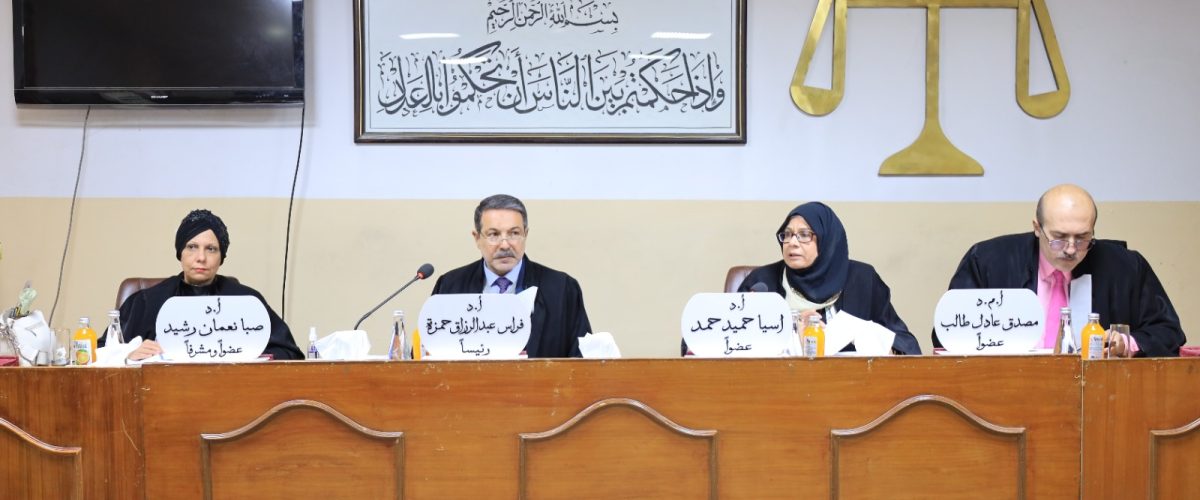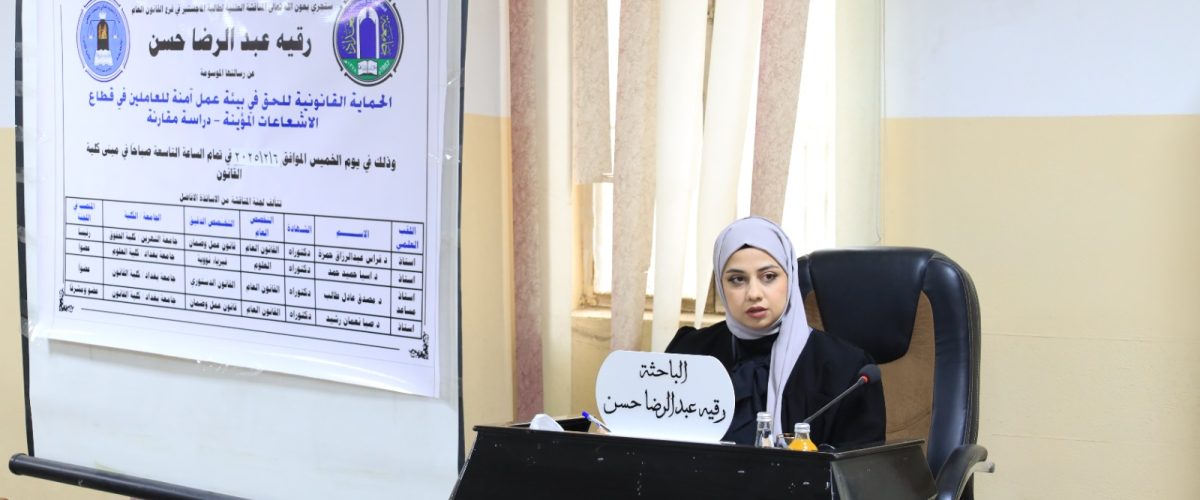The college of Law at the University of Baghdad discussed a master’s thesis in the public law by student Rukia Abdul-Ridha Hassan, titled “Legal Protection of the Right to a Safe Working Environment for Workers in the Ionizing Radiation Sector – A Comparative Study”, on Thursday, February 6, 2025, in the College’s Leadership Hall.
The discussion committee consisted of:
- Prof. Dr. Firas Abdul-Razzaq Hamza – Chairman
- Prof. Dr. Asiya Hamid Hamad – Member
- Assoc. Prof. Dr. Musaddaq Adel Taleb – Member
- Prof. Dr. Saba Nauman Rashid – Member and Supervisor
The thesis aimed to protect workers in radiation-related jobs from physical harm that may result from exposure to radiation. It proposed effective measures to protect them, such as regular inspections, providing protective equipment, enhancing training, sharing information about radiation risks and prevention methods, and establishing a legal framework and international agreements to ensure a safe working environment for workers in this field.
The thesis included three chapters:
- The first chapter addressed the concept of ionizing radiation and its effects.
- The second chapter focused on international and Arab protection of workers’ rights from the effects of ionizing radiation.
- The third chapter discussed the protection of workers in radiation jobs under ionizing radiation laws in Iraq and comparative countries.
The thesis concluded with several recommendations, the most important of which are:
- To control and mitigate the negative effects of radiation, attention should be given to designing radiation work areas in a way that protects workers, the public, and the environment from radiation hazards, as well as educating workers about radiation risks and training them on ways to prevent exposure.
- Workers exposed to radiation by the nature of their job should be required to comply with international safety standards and wear personal protective equipment, with strict penalties for non-compliance.
- Reform national legislation in light of the need for its inclusion in the National Nuclear, Radiological, Chemical, and Biological Control Authority Law to prohibit women from working with radiation, with exceptions based on specific conditions, such as pregnancy.
- Workers exposed to ionizing radiation should be required to use standard films to monitor their personal radiation exposure, as many workers neglect to carry them.
- Eliminate conflicts between labor law and the National Nuclear, Radiological, Chemical, and Biological Control Authority Law regarding the prohibition of women working with radiation, by making such prohibitions subject to certain conditions, such as pregnancy.
-
Recommend increasing the number of years for social security benefits to continue after a worker’s service ends, as occupational diseases caused by radiation exposure may not show symptoms until many years after service has ended, possibly up to ten years or more. It is better to leave the duration to be determined by the specialized medical committee.



